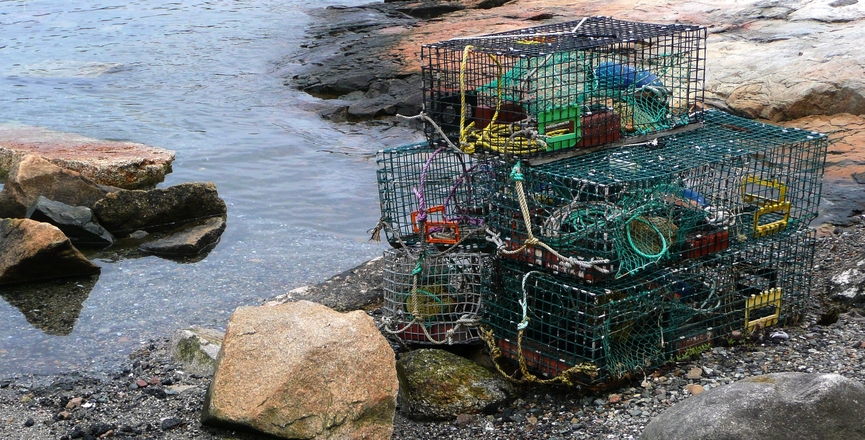Twenty one years ago the Mi’kmaq won a victory before the Supreme Court of Canada in the R. v Marshall case. The court ruled that a Mi’kmaq fisherman, Donald Marshall Jr., had a treaty right to fish for eels without a licence and supported the right to fishing for a “moderate livelihood,” which Indigenous people are allowed to do whenever they want.
The Sipekne’katik First Nation, which has not ceded regulatory authority of their fisheries to Ottawa, started up a moderate livelihood commercial fishery on September 17, 2020, the 21st anniversary of the Marshall ruling.
Oppostion from non-Indigenous people started almost immediately. They began destroying Sipekne’katik boats, traps and equipment, and harassed people who bought their lobster. In October, there were a series of violent attacks against facilities and people who were part of the moderate livelihood fishery.
When the images were shared of destroyed facilities and the RCMP standing by and letting a mob attack and threaten Indigenous fishers, many people decided to get active. Here are some ways to help and stay informed.
Learn about the corporate interests behind the attacks: Robin Tress published a great blog which was reprinted by rabble.ca titled “How corporate mega-fishery Clearwater has set the stage for violent conflict in Mi’kma’ki.” As you speak to others who are “concerned about the danger of off-season lobster fishing” please refer them to this article.
In 2019, Clearwater was convicted of gross violations in lobster fishing for storing 3,800 lobster traps on the ocean bottom off the Nova Scotia coast for upwards of two months in the fall of 2017. However, the power of Clearwater and other large commercial fisheries continues to grow even though their fishing practices are the actual threat to sustainability.
Furthermore, stand up to the racists who are organizing online to encourage attacks like those on the Sipekne’katik moderate livelihood fishery.
Support the right of First Nation fisheries to sell their products: After the Sipekn’katik First Nation launched their fishery, they could not sell it directly to buyers according to Nova Scotia’s provincial government, which regulates the sale of lobster by granting licences to approved lobster buyers.
The Sipekne’katik First Nation is looking for a provincial exemption to sell the moderate livelihood lobster, but Premier Stephen McNeil has said the province is awaiting the completion of negotiations between Ottawa and the band to define “moderate livelihood” fisheries. Let’s use this LeadNow petition to demand action by the federal government and stay tuned for ways to support efforts to push the provincial government.
Meanwhile, Chief Mike Sack of Sipekne’katik First Nation alleged his band’s catch was blacklisted by potential buyers. The facility that was attacked in New Edinburgh, N.S. in October was being used by Mi’kmaw fishermen to store their catch.
The owner has to rebuild and since the attack has also been found liable for $20,000 in fines for not disclosing some sales in 2018.
There are some restaurants which are standing in solidarity with the Mi’kma’ki, in Montreal, Toronto and across Nova Scotia. Support them and ask where your lobster was sourced if you go out to a restaurant.
Stand in solidarity: There have been marches across Canada to support the enforcement of treaty rights and Mi’kma’ki rights. Also continue to support the independent media which continue to cover what is happening in St. Mary’s Bay, also known as the Kespukwitk district of Mi’kma’ki, like Ku’ku’kwes News, APTN and The Nova Scotia Advocate in addition to your regular news sources.
Finally, as David Suzuki argues in his most recent blog for rabble.ca, if we want to decolonize we must continue to stand with land repatriation movements. Here is an article about First Nations-led solidarity efforts by Lenard Monkman for the CBC. Find more First Nations-led efforts to stand in solidarity.
Image: pxhere/creative commons




